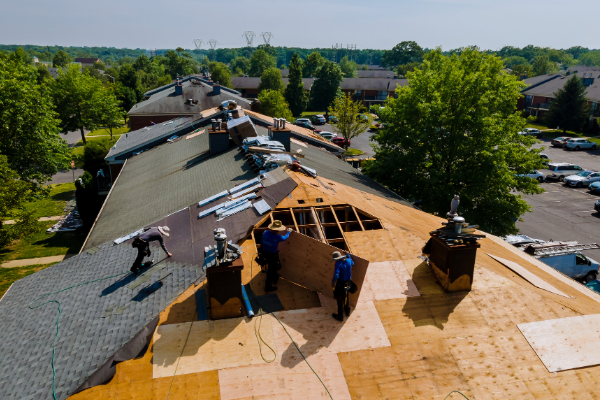Introduction
Keywords are the foundation of your roofing SEO strategy. Without the right ones, even the most professional website may fail to reach the right audience. Many roofing contractors struggle with keyword selection, often targeting terms that are too broad or competitive, leading to weak rankings and missed opportunities.
Think of keywords as the bridge connecting your services to people actively searching for roofing solutions. Understanding your potential clients’ search behavior allows you to choose keywords that not only improve visibility but also drive relevant traffic to your site.

This process is more than picking popular terms—it requires a strategy. In the following sections, we’ll explore:
- How to understand your audience’s search intent
- How to conduct local keyword research
- How to leverage long-tail keywords
- How to analyze competitor strategies
- How to prioritize and organize keywords effectively
By the end of this guide, you’ll have a clear roadmap for optimizing your SEO strategy and generating more qualified leads for your roofing business.
Understand Your Roofing Audience’s Search Intent
To choose the best SEO keywords, you must first understand the intent behind your potential clients’ searches. When people use Google to solve urgent roofing problems, their queries often reflect immediate needs—for example, “roof leak repair near me” or “shingle roof replacement cost.” These indicate that the searcher is actively looking to hire a roofing contractor and is close to making a decision.
📈 Check out our Roofing SEO Hub to plan your next moves.
Keywords also reflect different stages in the buyer’s journey. Someone searching “roofing types” is likely still in the research phase, whereas a query like “best roofer in [city]” suggests they are ready to hire. This behavior is shaped by how users search online—combining phrases, materials, and local terms in unique ways.
Focusing on commercial-intent keywords—terms that signal a readiness to take action—can help you attract more qualified leads and increase your conversion rate.

Start with Local Keyword Research
Local keyword research can help turn keywords into topics and is essential for roofing contractors looking to attract clients within specific service areas. By combining roofing-related terms with geographic modifiers—like “roof repair Atlanta” or “metal roofing Denver”—you can target your ideal audience more precisely.
Tools like Google Keyword Planner, Ubersuggest, and SEMrush can help you find high-volume, low-competition keywords relevant to your region. These tools also reveal insights such as search volume, keyword difficulty, and related search terms.
Don’t overlook suburbs and neighboring areas, either. Hyper-local targeting can give you a competitive edge over national companies that focus on broader terms. Incorporating nearby neighborhoods into your keyword strategy also improves your chances of ranking in the Local Map Pack.
Conducting thorough local keyword research enables you to build a list of terms that are not only relevant to your services but also to the communities you serve—helping you show up where it matters most.
Use Long-Tail Keywords for Better Conversions
Long-tail keywords are specific phrases that target niche search intent and often yield better conversion rates. Examples include “emergency roof repair after storm” or “how much does roof replacement cost in [city].” These queries are typically less competitive and more aligned with what customers are actually looking for.
Incorporating long-tail keywords naturally into your website—within blog posts, FAQs, service pages, and articles—can help capture this targeted traffic. For example, a blog titled “How to Handle Emergency Roof Repairs After a Storm” can draw in local homeowners searching for immediate solutions.
Focusing on long-tail terms ensures your site attracts not just any visitors, but the right visitors—those actively seeking your services and more likely to convert into clients.
Analyze Competitor Keyword Strategies
Analyzing your competitors’ SEO strategies can offer valuable insights into what’s working in your local market. Begin by identifying top-ranking competitors in your area and examining their websites. Look at which pages perform well, what keywords they’re using, and how their content is structured.
Use SEO tools like SEMrush, Ahrefs, or Google Search Console to find the keywords your competitors rank for and drive your strategy. Additionally, these tools can help identify your keyword gap vs competitors further informing you of a viable strategy to take over the competition.
The goal isn’t to copy your competitors but to learn from them and improve. A well-executed competitor analysis will help you refine your own keyword strategy and uncover new opportunities to capture untapped traffic.
Prioritize Keywords Based on Value and Feasibility
Once you’ve compiled a list of potential keywords, the next step is prioritization. It’s easy to get distracted by high-volume terms, but they’re often too competitive to rank for—especially if you’re a smaller roofing business. Instead, focus on keywords that align closely with your services and geographic market.
Build a keyword list that supports your business goals and attracts the types of leads you want. Choose terms that balance search volume with ranking feasibility and relevance. For example, targeting “roof repair [city]” may provide better ROI than broad terms like “roofing.”
Prioritizing keywords this way helps you use your SEO resources more effectively, attract higher-quality leads, and ultimately drive more business.
Organize Keywords by Page and Purpose
Proper keyword organization including mapping keywords to pages ensures that each page on your site serves a clear purpose and targets a distinct set of terms. Assign a primary keyword to each core page—like your homepage, service pages, blog articles, and landing pages—so that they don’t compete with one another.
Avoid keyword cannibalization, where multiple pages target the same term and dilute your SEO power. Use supporting keywords and semantically related phrases to reinforce your main topic and boost topical authority.
For example, a service page focused on “roof repair” might also include terms like “shingle replacement,” “roof leak fix,” and “roof damage inspection” to cover broader search behavior.
This structured approach to keyword mapping enhances your website’s organization, improves rankings, and helps users (and search engines) understand the value of each page.
| Page | Primary Keyword | Supporting Keywords | Intent |
|---|---|---|---|
| Roof Repair – [City] | roof repair [city] | roof leak repair, shingle repair, emergency tarping | Hire now |
| Roof Replacement – [City] | roof replacement [city] | asphalt shingle replacement, roof install | Hire now |
| Metal Roofing – [City] | metal roofing [city] | standing seam metal roof, metal roof installers | Consider/hire |
| Storm Damage – [City] | storm damage roof repair [city] | hail damage roof, insurance roof claim | Emergency |
| Gutters – [City] | gutter replacement [city] | seamless gutters, gutter installation | Hire now |
| Blog: Costs | roof replacement cost [city] | new roof price, asphalt vs metal cost | Research |
Need Help Choosing the Right Keywords? Let an Expert Do It for You
Choosing the right SEO keywords is critical—but it can also be complex and time-consuming. That’s where I come in.
I specialize in helping roofing contractors build high-performing, locally focused SEO strategies that bring in real leads—not just traffic. From keyword research to content planning, I handle the technical and strategic work so you can focus on what you do best.
My services include:
- Custom keyword strategies tailored to your local market
- Competitive analysis to uncover ranking opportunities
- Done-for-you content planning based on real search intent
- Free content audits to evaluate and enhance your current SEO
Let’s turn your roofing website into a client-generating machine.
Insights. Ideas. In Your Inbox
Summary
Choosing the right SEO keywords is foundational to building a successful online strategy for your roofing business. By understanding your audience’s search intent, conducting smart local research, using long-tail keywords, analyzing your competitors, and organizing your content effectively, you’ll set your website up for real growth.
If you’re ready to take the guesswork out of SEO and start attracting high-intent leads, consider working with an expert to ensure your strategy delivers real results.
Frequently Asked Questions
Why is keyword research important for roofing contractors?
It helps uncover the exact terms potential clients are using, making it easier for your website to appear in relevant search results and attract more qualified leads.
How do I find local keywords for my roofing business?
Use tools like Google Keyword Planner, SEMrush, or Ubersuggest to combine service terms with your city or region for targeted, local results.
What are long-tail keywords and why should I use them?
They’re specific phrases that match user intent more precisely—leading to higher-quality traffic and better conversion rates.
How can competitor keyword analysis benefit my roofing business?
It helps you spot what’s working for others in your area and identify opportunities to outperform them with better content and keyword targeting.
Should I hire an expert for my SEO keyword strategy?
Yes. An expert can streamline the process, avoid costly mistakes, and create a results-driven strategy tailored to your business goals.

